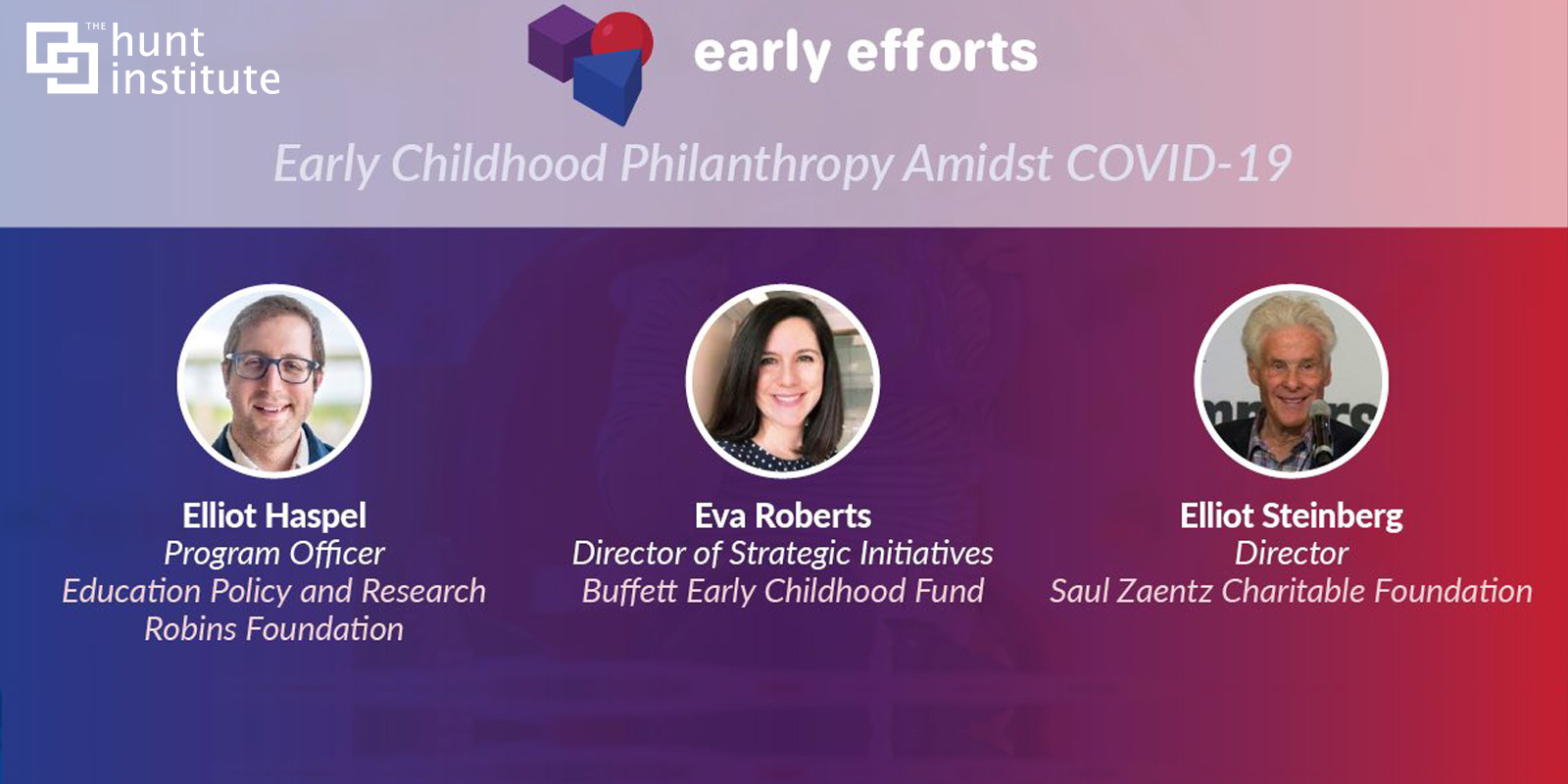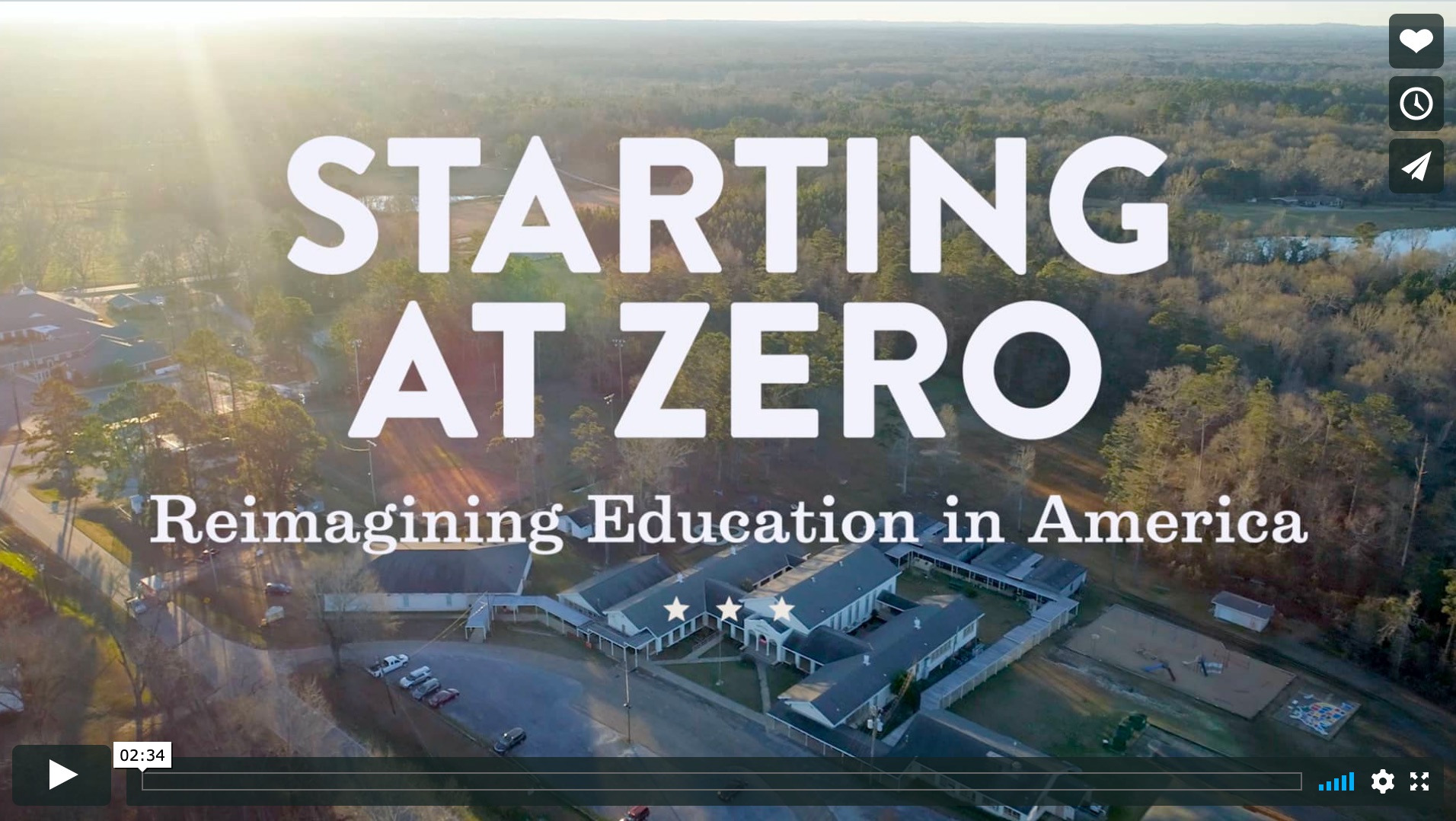Because we can’t take our Early Learning Nation Studio on the road during this time, stay tuned as ELN recaps Top Takeaways from important webinars, town halls and virtual events from the Early Learning field. Read them all and join the conversation! And visit our Early Learning Nation channel on YouTube for interviews with leaders from education, child development, business, politics and more.
On Tuesday, July 21, The Hunt Institute hosted three philanthropic leaders for a conversation about early childhood philanthropy amidst COVID-19. Dr. Dan Wuori, director of Early Learning, moderated the panel, which featured:
- Elliot Haspel (an Early Learning Nation contributor) of the Robins Foundation
- Eva Roberts of the Buffett Early Childhood Fund
- Elliot Steinberg of the Saul Zaentz Charitable Foundation—which produced two upcoming documentaries on early childhood, Tomorrow’s Hope and Starting with Zero
👉 Read our takeaways from the previous Hunt Institute webinar on early childhood philanthropy.
Here’s what we heard during the webinar:
1. We have our work cut out for us. “It’s remarkable,” Haspel deadpanned, “to have achieved a system that works for literally nobody.” He pinpointed the power dynamic in early learning, compared to what’s happening in public education with teachers and teachers’ unions standing up for their right to a safe workplace, as a central concern.
Steinberg worried, “If the children facing the greatest circumstances of risk don’t get quality educations, the gaps we’re seeing will only persist.”
2. The narrative is evolving. Initially, according to Roberts, child care educators overwhelmed the listserv of the Alliance for Early Success in search of reliable information about coronavirus. These days, she said, the narrative is shifting from how can we get back to work? to how can we get back to work without compromising the quality of early-childhood education? Or even improving it—building back better, to invoke a motto that many policymakers and social entrepreneurs have adopted.
Trailer for Tomorrow’s Hope, produced by the Saul Zaentz Charitable Foundation
3. Foundations are listening to their grantees. Many of the field’s major philanthropies are supplementing their long-term funding priorities with emergency responses to the pandemic.
4. We aren’t going to grant our way out of the crisis. Roberts said the philanthropic sector’s combined funding to support early childhood education is “a drop in the bucket” compared to what government can do.
Haspel mentioned Virginia’s $95 million plan to improve the quality and availability of early-childhood education and the $775 billion plan announced by presidential candidate Joe Biden.
He also pointed to a Save the Children Action Network survey that found, “Voters overwhelmingly support specific federal financial assistance for the child care industry, with eight in ten voters saying the child care industry should receive ‘targeted financial assistance from the federal government.’”
Trailer for Starting at Zero: Reimagining Education in America, produced by the Saul Zaentz Charitable Foundation in partnership with Harvard Graduate School of Education and Firestarter Interactive
5. Public-private partnerships offer reason for optimism. This is an ideal moment to bring foundations, governments, chambers of commerce and corporations together to achieve impact.
“People have never appreciated early childhood more,” said Roberts. “We can really democratize the issue.”
For an example of what such partnerships can bring about, Steinberg pointed to Alabama, citing a National Institute for Early Education Research’s 2019 report noting the state’s progress: “Support for preschool is strong among state leaders, their preschool program meets all 10 of NIEER’s quality standards benchmarks, and enrollment has expanded by 28 percentage points since 2002.”

Mark Swartz
Mark Swartz writes about efforts to improve early care and education as well as developments in the U.S. care economy. He lives in Maryland.




